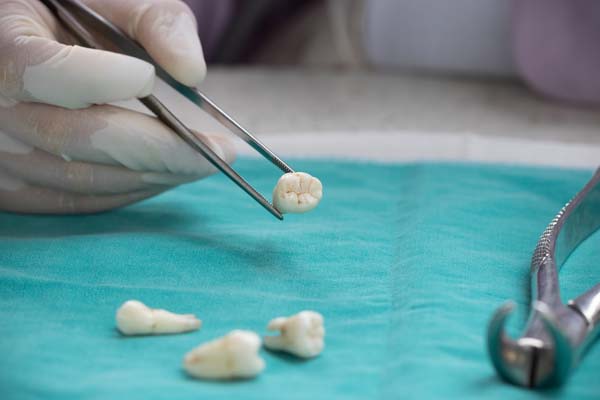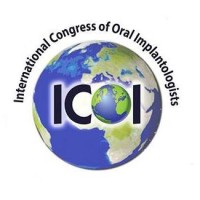Tooth Extraction Is a Common General Dentistry Procedure
Of the many services dentists provide, is among the most frequent. There are various reasons why this treatment may be necessary. Though it can be difficult to have missing teeth, removing one can be beneficial for some conditions. If your dentist has recommended that you undergo this procedure, it is helpful to first learn about the process. You can then feel more comfortable and at ease during your appointment.
When tooth extraction is necessary
Often, extracting a tooth is the last method a dentist would consider. Restorative treatments such as dental veneers, dental crowns, and fillings can often address a patient’s needs. However, if a tooth is badly damaged beyond repair, extraction is the right method. Severe fractures or cracks can be so extensive that no other restorative treatment can save the tooth.
Infection is another reason why extracting the tooth might be the right approach. This can keep the infection from spreading into other parts of the body. Removing a tooth may also be the dentist’s recommendation if there is excessive decay. When a filling or root canal is not enough to repair the tooth, the dentist will have to pull it out. When teeth are crowded, removing one or more can create space.
How the process works
When a tooth is in place, the dentist may use a local anesthetic to numb the area. This will reduce or eliminate any pain that the patient feels during the tooth extraction. Once the patient is numb, the dentist may have to cut into the gum tissue to expose some surrounding bone. Removing some of the bone can help with the removal process. The dentist then pulls out the tooth with a dental tool.
For impacted teeth
Tooth removal may be necessary for a tooth that has not yet broken through the gums. Another tooth could also be blocking a yet-to-erupt tooth. To remove a tooth such as this, the dentist might put the patient to sleep with a general anesthetic. The dentist will cut into the gums and break the tooth into pieces. After removing the pieces, the dentist sews the wound and controls the bleeding.
Recovery
Recovering from an impacted tooth removal will generally take longer than a non-impacted tooth. The patient should rest and avoid strenuous activities for at least a day. Taking pain medication can relieve any discomfort. Also, the patient should apply an ice pack to the affected area to manage any swelling that occurs. It may help to avoid eating hard, sticky, or chew food for a few days.
Care for a dental extraction
Removing a tooth will leave an open wound in the gums. The individual will need proper care after this procedure. Controlling the bleeding is a priority. This can happen by biting on sterile gauze. A blood clot will form in the tooth socket. Biting on a tea bag can help stop the bleeding because of the tannic acids in it.
Controlling the pain is also important. The dentist will prescribe some pain relievers and anti-inflammatories. Taking these medications can result in drowsiness. The patient must not drive or operate heavy machinery after taking them.
Reducing the swelling in the gum tissue can help minimize the pain as well. Placing an ice pack on the cheek for 10 minutes can help bring down the inflammation. The patient can repeat this at five-minute intervals. There could be some facial bruising later on, but this will fade on its own.
Going to bed early can help the body recover right away. Elevating the head will reduce the pain and bleeding. A soft diet can prevent the patient from chewing hard. It also keeps the blood clot intact for healing. Brushing gently without any toothpaste will prevent the clot from dislodging. Rinsing the mouth with salt water after 12 hours can help the area heal.
Replacing the tooth
The dentist may or may not recommend replacing a tooth after a tooth extraction procedure. If the dentist removed the tooth because of crowding issues, the dentist will not replace it. However, if the dentist and patient decide to fill in the gap, there are a few options. Dental implants, dentures, or a dental bridge are the most common choices.
Be prepared for your visit
If you have an upcoming tooth extraction appointment, you probably feel a little nervous. Your dentist has the knowledge and training to successfully perform this procedure. It can also put your mind at ease to know more about how the process works. You should also be aware of when this is the right treatment.
Request an appointment here: https://www.encinodentalassociates.com or call Encino Cosmetic & Dental Implants at 8185782333 for an appointment in our Encino office.
Check out what others are saying about our dental services on Yelp: .
Related Posts
Going through a tooth extraction can be a daunting experience. Many people may feel anxious about the process, wondering what to expect and how it will affect them. In this blog post, we will discuss the process of getting an extraction, from the initial consultation to the post-extraction care. We will cover what you can…
Having a tooth extraction may not be something you think about much, but it could make sense in some cases. Having a full set of teeth can help you have a more attractive smile. You will also be able to chew more effectively. There are times when the dentist will advise an extraction. One of…
Options for replacing missing teeth are not just about aesthetics - they can restore your ability to chew effectively and avoid bone loss after teeth are gone. Toothless gaps can be filled by dental implants, bridges, or dentures, but if you're looking for more immediate results, there are other options for replacing missing teeth available…
With so many options for replacing missing teeth, tooth replacement may be intimidating. However, not replacing a decayed or missing tooth may have negative effects on your overall dental health. A dentist may recommend tooth extraction and replacement for several reasons. Although these procedures might sound daunting, they will help maintain your dental health for…




